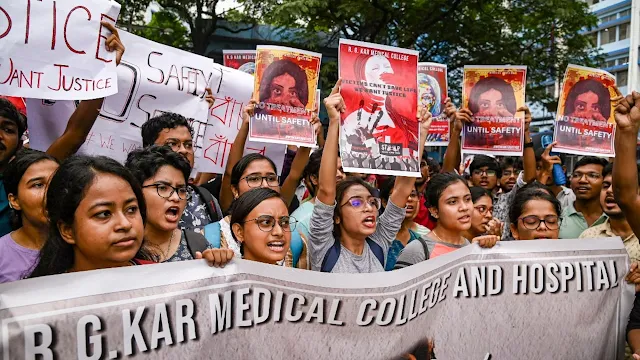There's a saying: "There is no such thing as a half-pregnancy." This adage seems particularly relevant when discussing the current regime of the Trinamool Congress (TMC). The party appears to be entrenched in widespread corruption that affects nearly every aspect of our lives. One must wonder, why would they exclude the health sector—a lucrative area where illicit money can flow freely, thanks to a network of corrupt leaders colluding with ambitious bureaucrats?
The chilling conspiracy surrounding the alleged rape and murder of a vulnerable female doctor is circulating widely on social media platforms, raising alarm and concern. This horrific act reportedly took place within the supposedly secure environment of a government hospital under the direct oversight of TMC leadership.
It seems that those responsible executed their crime with meticulous planning, utilizing medical knowledge while benefiting from protective oversight at the governmental level.
Since 2003, a whistleblower has highlighted numerous instances of corruption at RG Kar Hospital, yet the hospital's head has continued to receive support from the ruling party and the health department.The pressing question now is: when will the truth come to light? What lies ahead?
Back in the 1960s and early 1970s, revolutionaries adhered to Chairman Mao's belief that a revolutionary party was essential for successful change. However, it appears that such ideologies have been overshadowed by modern disillusionment with socialist aspirations. The collapse of Soviet communism and various Eastern European regimes illustrates a stark divide between hopes and actual outcomes.
In our country, the effectiveness of disciplined political parties has proven lackluster, leaving a disappointing aftermath. Social Democratic entities like the CPI(M) (despite their self-identification as communists) have lost the trust of their former loyal supporters.
Meanwhile, the right-leaning party, the BJP, is gradually losing public support. Consequently, West Bengal is witnessing a convergence towards liberal democracy, as ordinary citizens increasingly recognize the demagogues in power. The TMC too is experiencing a decline in its support base amidst its campaigns in the face of corruption, thuggery, and compromised intellectuals.
This has led to a burgeoning sentiment among the populace, encapsulated in a simple mantra: “We no longer believe in political affiliations. Enough is enough; we seek liberation from the constraints of rigid political parties. Let's unite beyond colors.”
There is undoubtedly a new wave of experimentation emerging—reminiscent of the anti-Emergency movement led by Jayaprakash Narayan. We await to see where this movement leads, the trajectory it follows, and the political shores it ultimately reaches.
One can only hope this neo-convergence infuses new meaning into our daily lives and offers a glimpse of a brighter future.
Long live the democratic movement of the people!
---
**Chartered accountant based in Singapore


Comments